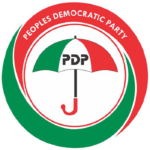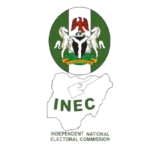By Ijeoma Olorunfemi
The Federal Government, on Tuesday, called on relevant government’s institutions to collaborate and harmonise the geoinformation or geographic information systems to reduce cost of governance and address national concerns.
Sen. Abubakar Bagudu, the Minister of Budget and Economic Planning, made the call at a four-day workshop aimed at reviewing and harmonising the National Geoinformation Policy and the National Geospatial Data Infrastructure (NGDI) Bill in Abuja.
The workshop was organised by the National Space Research and Development Agency (NASRDA).
Bagudu regretted that Nigerians were users of geospatial dataset generated by other foreign institutions, in spite having the capability to develop indigenous ones, which he blamed on lack of articulation by institutions of government.
“The fault is not a resource problem, but an articulation problem, organisations like Google did not start by mapping the world, they use what is there.
“Developing our own is about integration, innovation, ability to share resources, because most of the challenges identified can be solved by cooperation.
“The challenge to you as participants is to help articulate the NGDI, guide us so that we can quickly evolve.
“We need to adopt cooperation mechanism that will provide a platform where all those in geospatial information can work together and develop common standards,’’ Bagudu said.
He recalled the Federal Executive Council adopted to implement the Orasanye Report, which identified duplication of government agencies with overlapping functions.
Bagudu said that geospatial information could address insecurity problems, land border crisis, land disputes, food security, climate change, among others.
In his remarks, Chief Uche Nnaji, the Minister of Science, Technology and Innovation (STI), said that President Bola Tinubu’s vision on Renewed Hope would foster geospatial data and empower the nation’s growth, resilience, and prosperity.
Represented by Prof. Nnanyelugo Ike-Muonso, Technical Adviser to the minister, Nnaji said geospatial data was key to achieving the diverse areas stipulated in the Renewed Hope Agenda.
“Geospatial data is pivotal in realising these ambitious goals as it underpins all interventions within our geographical space.
“NGDI plays a crucial role in advancing the Renewed Hope Agenda by providing a solid geospatial foundation for monitoring progress, facilitating, mapping and environmental monitoring.
“Additionally, the NGDI enhances response capabilities to marine incidents, supports space-based technologies, enables telemedicine for national health coverage, serve as a cornerstone for precision agriculture and water resource management.
“It fosters innovative geospatial applications that fuel economic growth,’’ the minister said.
Nnaji expressed optimism that the workshop would develop a revised policy framework and operational strategies to sustain the NGDI ecosystem.
He added that it would update the 2010 Geoinformation Policy for current relevance and revise the NGDI Bill for executive endorsement in 2024.
Dr Halilu Shaba, Director-General of NASRDA, described Spatial Data Infrastructure (SDI) as a digital platform for implementing a framework of integrated geospatial data, metadata, tools and users that are interactively connected.
According to Shaba, 80 per cent of governmental data has a locational basis and knowledge of location of an activity allows for linkages of similar tasks and projects.
He said that over the years, the agency had organised series of meetings and workshops to implement the 2010 National Geoinformation Policy and enact the NGDI bill, but results were minimal.
“The NGDI programme has the embedded inconsistencies in the production of geographic information resulting in different positional accuracies, coding and classification systems, different scaling, packaging, formatting system and projections.
“Geospatial data are not collected or automated to standards that will make the data useful in multiple applications, among others,’’ Shaba said.
According to him, the agency is opened to collaborations that will ensure the country reaps from developing its indigenous geospatial information database.
Dr Ganiyu Agbaje, pioneer National Coordinator of the NGDI, said that geospatial data infrastructure was the major key to achieving the Sustainable Development Goals.
Agbaje described NGDI as a very powerful planning tool that would significantly improve the quality, efficiency and technical development in the allocation of resources.’’
He added that there would be a strong justification, if the government invested in the collection and management of fundamental geospatial information as component of national information infrastructure.
According to him, it will ensure that geoinformation permeates every aspect of the society and readily available when needed.
The News Agency of Nigeria (NAN) reports that in 2003, NASRDA, organised a workshop on spatial data infrastructure to discuss the draft of the National Geoinformation Policy on NGDI. (NAN)(www.nannews.ng)
Edited by Deji Abdulwahab











